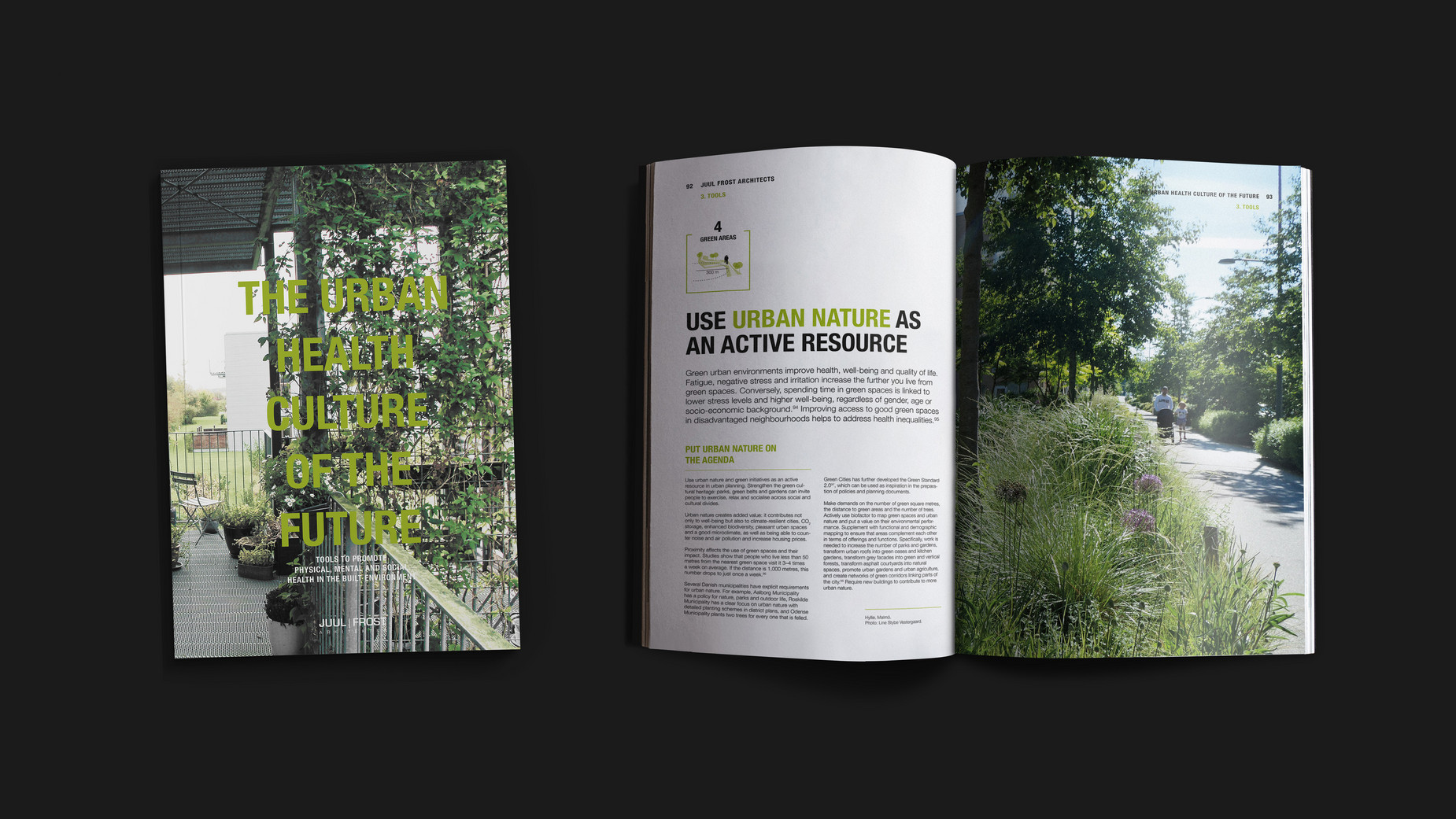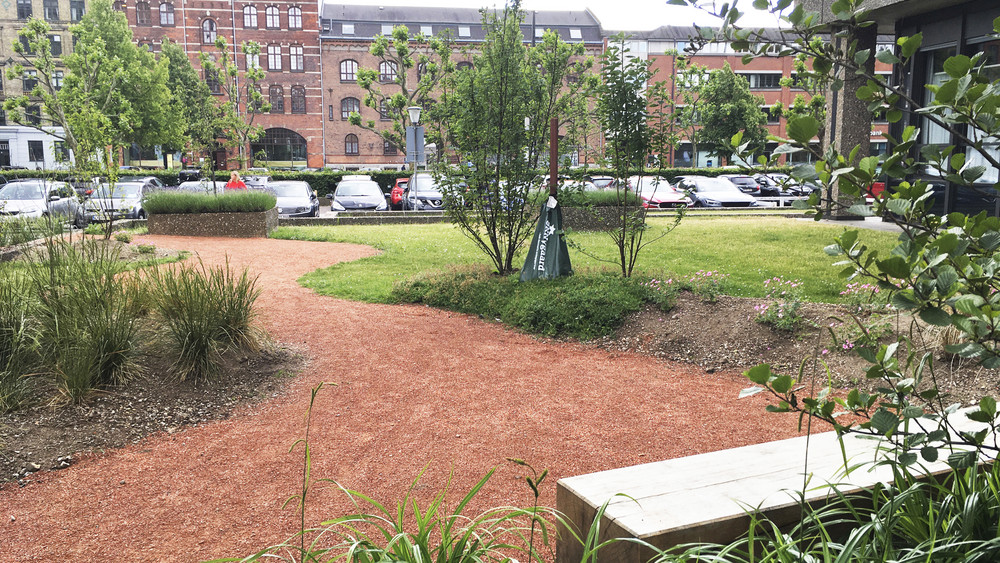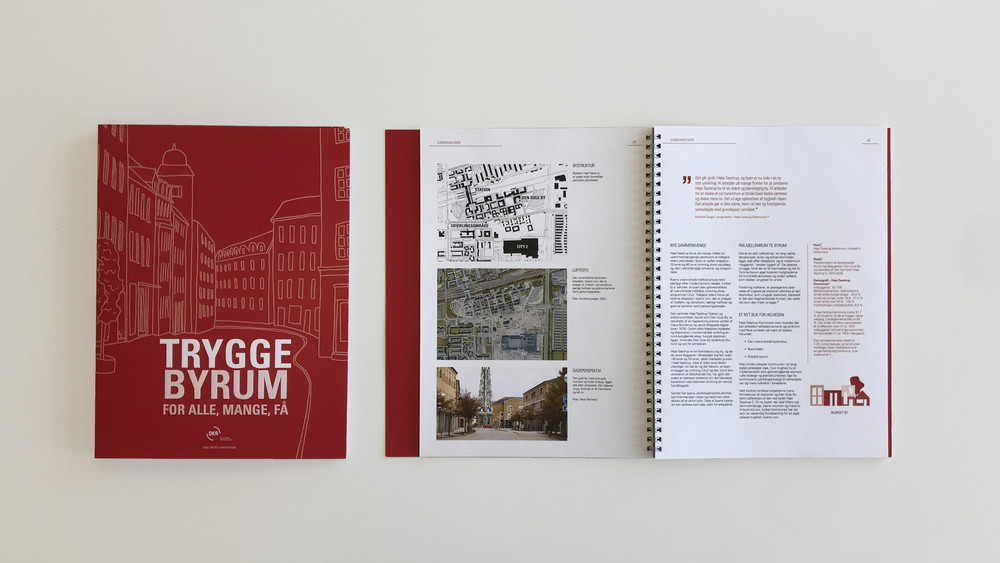The Urban Health Culture of the Future
The aim of the development project ‘the Urban Health Culture of The Future’ is to ensure the connection between health and planning.

As part of the think tank behind ‘The Urban Health Culture of The Future’, we have acquired both new knowledge and great inspiration in relation to setting the framework for healthy and sustainable urban environments.
With support from Realdania and a background in international collaborations, Juul Frost Architects has launched the Urban Health Culture of the Future.
As the populations of urban areas grow, the design of cities and urban areas plays an increasingly important role in securing people’s quality of life and health: Sedimentary lifestyle, noncommunicable diseases, loneliness and social segregation are some of the urban health issues that together with the demographic changes and climate changes poses new challenges to our urban well-being.
The design of our cities, built environment and urban spaces has an impact on our health and well-being as well as our health culture: how we live our everyday lives, our behaviour and the choices we make.
A holistic tool
The Urban Health Culture of the Future stands on the shoulders of Juul Frost Architect’s previous development project 'Cities of well-being', and is based on the UN's Global Goals, with a particular focus on goal 3: 'Health and well-being' and goal 11: 'Sustainable cities and local communities' .
The result of the project is interdisciplinary tools and recommendations to work holistically with health and health culture in the built environment. On the basis of a knowledge gathering and case studies, tools are developed that will eventually be tested in a number of pilot projects.
Think tank, health labs and pilot projects
The development of tools took place in collaboration with Holbæk and Aalborg municipality. In parallel, a think tank, with representatives from major research centres and universities as well as practice ensure innovation through the inclusion of interdisciplinary knowledge about physical, social and mental well-being seen in a holistic perspective.
A number of open health labs with different themes, professional inputs and discussion will also ensure that actors and stakeholders can contribute knowledge and constructive criticism to the project.
The project has resulted in a publication that contains cases, contributions from the think tank's experts and tools for working holistically with health in planning.
The publication is available here.

